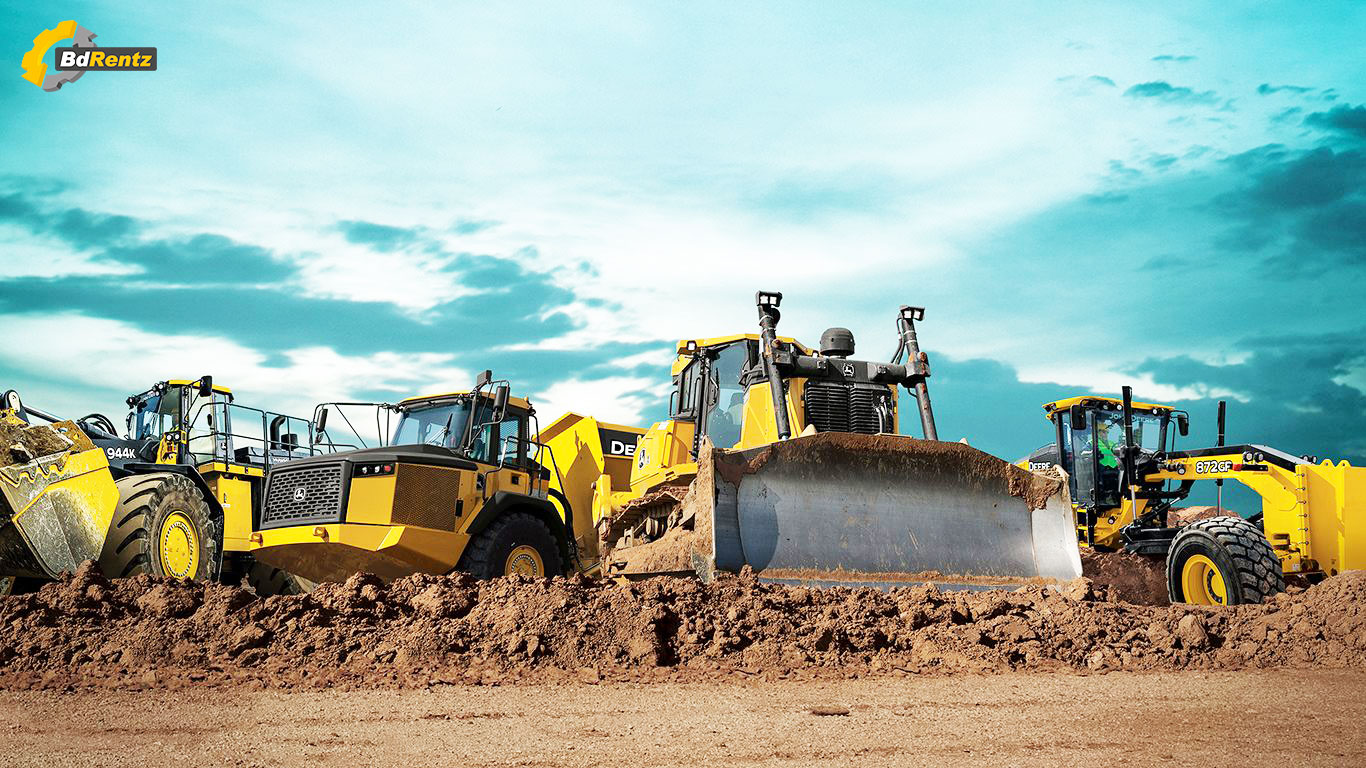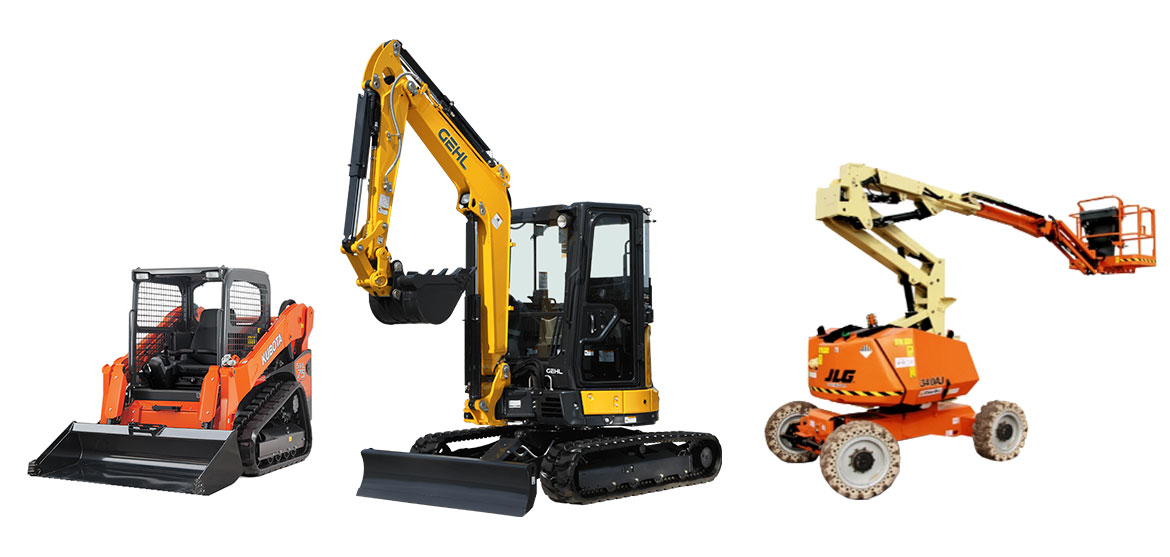Forklift Rental: Heavy Training Equipment for Warehousing and A lot more
Forklift Rental: Heavy Training Equipment for Warehousing and A lot more
Blog Article
Optimize Your Spending Plan by Comprehending the Prices Related To Construction Equipment Rentals
Understanding the complete extent of costs connected with building and construction equipment leasings is critical for maximizing your budget plan. What strategies can be used to effectively take care of these costs and guarantee a much more reliable rental experience?
Overview of Rental Expenses
When considering building and construction equipment services, comprehending the linked expenses is critical for reliable budgeting and project preparation. Rental costs can differ substantially based upon numerous elements, including devices kind, duration of leasing, and area. The preliminary rental cost frequently mirrors the equipment's market demand and its linked functional capacities, affecting the total cost.
Along with the base rental price, supplementary prices might occur, such as transport costs, fuel surcharges, and upkeep costs. It is vital to account for these extra expenditures to precisely analyze the total expense of leasing equipment. Additionally, the rental duration can affect pricing; longer services may qualify for reduced rates, while temporary services could incur greater day-to-day costs.

Breakdown of Rental Prices
A detailed understanding of rental rates is vital for service providers and job managers intending to enhance their spending plans. Rental rates for building and construction devices usually contain several parts, consisting of base prices, time-based costs, and use fees.
Base prices are the core costs connected with the leasing of the equipment, usually figured out by the type and dimension of the equipment. These rates can differ dramatically, affected by factors such as tools demand, accessibility, and local market trends. Time-based charges, which might be daily, weekly, or monthly, offer to accommodate various job timelines and rental periods.
Furthermore, rental rates might include use fees, which are appropriate when tools is used beyond a defined limit, guaranteeing that the rental firm can represent damage. Seasonal demand changes can likewise influence rental rates, with peak building and construction seasons typically regulating greater prices.
In addition, comprehending the rental firm's policies relating to maintenance and insurance policy can offer further insight right into the overall cost structure. By evaluating these elements, professionals can make educated decisions, making certain the choice of rental tools lines up with both task needs and budget plan restraints.
Extra Costs to Take Into Consideration
Understanding the ins and outs of additional costs is essential for specialists to handle their overall rental expenditures effectively. Beyond the typical rental prices, numerous additional charges can significantly impact the complete price of tools leasing. These charges commonly include distribution and pickup charges, which can differ based on distance and logistics associated with transporting the equipment to and from the work website.
Furthermore, some rental business may impose gas surcharges if the equipment is returned with much less gas than when rented out. It is also necessary to be conscious of prospective cleansing charges, especially for specialized tools that needs complete maintenance after usage.

Thoroughly evaluating the rental agreement and clarifying these additional fees ahead of time can assist contractors make certain and prevent unanticipated costs that budget plans continue to be intact throughout the job lifecycle.
Maintenance and Repair Service Expenses
Routine repair and maintenance expenses are usually neglected variables that can considerably affect the overall expense of construction devices services. When renting devices, it is critical to consider not only the rental fees however additionally the potential expenses linked with maintaining the machinery in optimal operating condition.
Several rental companies include fundamental upkeep as part of the rental agreement; nevertheless, extra unforeseen break downs or extensive repair work can cause added expenditures. It's important to examine the rental agreement very carefully to recognize what upkeep solutions are covered and what responsibilities fall on the renter.
Furthermore, equipment that is not well-maintained can result in ineffectiveness at work site, potentially enhancing and triggering delays project costs. To reduce these risks, it is advisable to conduct regular inspections and preserve open communication with the rental company concerning any type of concerns that occur throughout usage.
Insurance Coverage and Obligation Costs
Insurance and responsibility prices are important parts that can considerably influence the total cost of construction equipment services (heavy equipment rental). These prices make sure that both the rental firm and the customer are secured from possible monetary losses arising from crashes, damage, or theft throughout the rental period

Furthermore, customers need to recognize any kind of deductibles or exclusions in the insurance coverage, as these can affect potential out-of-pocket expenses. Understanding the conditions of any insurance protection is important to stay clear of unexpected expenses. Inevitably, budgeting for insurance and obligation expenses can assist make certain a smoother rental experience and shield versus financial dangers related to building projects.
Final Thought
In final thought, a comprehensive understanding of the costs connected with construction tools rentals is vital for reliable spending plan monitoring. By assessing rental prices, added fees, maintenance expenses, and insurance policy people, demands and companies can reduce unexpected expenditures. This calculated approach not only enhances cost-effectiveness however likewise ensures that jobs proceed efficiently and successfully. Inevitably, informed decision-making relating to tools rentals adds to the general success of building and construction undertakings.
Rental costs can differ considerably based on a number of factors, consisting of devices kind, duration of service, and place (equipment rental company). The rental duration can impact prices; longer rentals might qualify for affordable rates, while temporary rentals may sustain greater everyday costs
By carrying out comprehensive study and engaging image source with trusted rental companies, service providers can successfully browse the complexities of rental pricing, inevitably maximizing their monetary sources.
Beyond the typical rental rates, different auxiliary fees can dramatically influence the total expense of tools service. Rental business usually offer responsibility insurance that covers injuries to third celebrations or damages to building, while devices damages insurance can cover the cost of repair work or substitute if the rented equipment is harmed.
Report this page